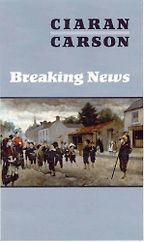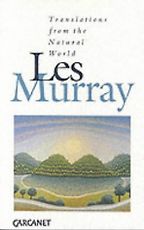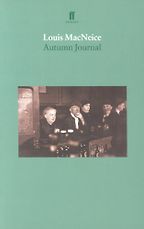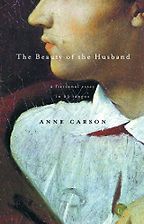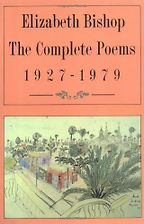First: why did you choose Breaking News?
I think it’s a fabulous example of a really cohesive book of poems. Ciaran Carson is a very interesting war poet and he has always been that. His collection Belfast Confetti was an analysis of the Troubles in Belfast but already, even in that book, the way that he wrote about the dislocations in both geography and language as a result of the Troubles had much wider resonances for any kind of conflict in any kind of urban setting. I really like Breaking News because it’s a logical continuation of that. It’s an indication of the earlier collection in that he’s actually set it somewhere else, and towards the end of the book he’s used the theatrical newspaper reports of the time from the Crimean War. In Belfast Confetti he talks about the names that are there in Belfast, like Crimea Road. It’s a fabulous revisiting but it’s a big shift and it’s great to see the main preoccupations still there but also diversified.
You grew up in Belfast. Did his poetry have an influence on your writing?
No, not really, but I do think he’s the archetypal poet of urban Belfast at that time. His earlier work is characterised by this long information-led rolling line, very much influenced by the American poet C K Williams, and in the first half of Breaking News it’s entirely the opposite: tiny poems, skeletal poems often comprised of only a few words and often with one word lines, so just the audacity to reinvent your own technique like that is really impressive. The first poems in the book could be read as Belfast poems, lots of them are set in the Crimea but lots of them are set here, and I think the sparsity of them is almost a formal comment on the aftermath of the Troubles, post-ceasefire Belfast: what gets left behind – remnants, debris, all those kinds of things.
“I tell my students, ‘Don’t put any abstract nouns into your poems. Just write about things you can count or put in a wheelbarrow’.”
Then I love the way that is counterpoised with that fantastic take-off sequence at the end of the book based on the actual newspaper reports from the first embedded war correspondent, William Howard Russell, in Crimea. Ciaran Carson has taken the details of those reports – they were really shocking when they were read at home, the incredible shock not only of the violence itself but the devastation wreaked on civilians and the lack of care for the soldiers in terms of really poor equipment and really poor hospital care. I just think it’s a superbly unified book which both comes out of previous poetic concerns and extends them and builds on them. It’s my favourite Ciaran Carson collection.
Would you say his love of Irish music is evident in his poetry in terms of its rhythms and sound?
Yes, he’s an expert in Irish music and before he reads poetry he plays his whistle! You see his music, especially in the build-up rhythm of those poems like ‘Gallipoli’, those long lines and that cascade of terrifying detail. The way he delivers the final line: ‘I have not even begun to describe Gallipoli…’
Let’s move on to Les Murray, the Australian poet. Did you discover Translations from a Natural World when you lived in New Zealand?
No, I actually discovered Les Murray in Japan. I went to Japan in 1995, just after I finished my degree, and Translations from a Natural World was a book on sale, and I bought it and put it in my briefcase. I didn’t really know anything about Les Murray when I read that and I was really amazed by it, and then I bought his selected poems and it began a life-long fascination with his work.
Translations from a Natural Worldis so audacious. There’s a sequence in the middle of the book, the bulk of the book, where the poems are either about or in the voice of a different living organism, from a yard horse to a sunflower, and what I love is the audacity in that project. What he’s attempted to do is actually forge a language appropriate to each organism and I think only Les Murray can really do that. Of all the poets I read today in English, only he has that protean talent with forging language for a new specific poetic purpose.
Would you say he’s a poet from a traditional background with a radically original voice?
Yes, he is radically original, but it’s just this idea that language can be fashioned and not inherited. That’s really what I love about it. But it’s not easy and there are lots of the poems that I actually don’t understand, but you can get glimpses into the cleverness. He’s obviously sat down and thought about cows – would they have an I voice? They wouldn’t: they would be we. Or pigs? Pigs are us because we is too gentle but it’s still a collective pronoun. The cleverness of all those decisions is just fabulous.
And he has that lovely connection with the earth and ancientness of Australia.
Yes. That veneration of the natural world and that whole ecological concern which comes through. And just his use of sound – he’s written a poem about the Australian lyrebird which can imitate all the other bird sounds. He’s got all these sounds, like kettles and chainsaws which these birds can mimic, in the poem and it’s superbly clever. I’ve been reading his work for years but I picked this collection because it’s so distinctive.
Moving back to the Western hemisphere, tell me about Louis MacNiece’s Autumn Journal.
I think it’s a brilliant example of the public poem. There are obviously such potential dangers that you risk if you are going to write very political poetry or poetry that’s tied down to specific events or times, because the danger, of course, is that once that event or time passes, then poetry that is so intimately connected to a specific public event would lose its significance. But I love Autumn Journal; I love MacNiece, he’s a hugely important writer and I feel very proud that he came from Northern Ireland. I think Autumn Journal is such a superb tour de force in terms of its negotiation of public and private themes.
Do you think there is a tension between the public and private in MacNiece’s poetry?
Yes I do, absolutely. Autumn Journal has a big time frame, moving towards war and everybody knows that’s what’s really going to come. It’s connected in a very well-read, well-considered way to the European situation, but it’s beautifully woven with his own doubts and his own personal nightmares. It’s also filled with fantastic quotidian detail, the barrels of oranges and apples, and it has this fabulous singing, rhythmical, jazzy quality to it which is both exhilarating when you read it, but it’s also part of that unstoppable march towards the cataclysm. It’s double edged.
Do you have a favourite poem from that collection?
I actually don’t think I can pick one over and above any other because they are all of such a high standard; they really are one utterance.
Did reading MacNiece inspire you to become a poet?
Yes, I discovered him when I was 18 and I read him compulsively through university.
Would you say he’s the Northern Irish W H Auden of his time?
Yes, I would, absolutely. He’s held in huge regard here, much more than in England.
Really? I think he’s hugely loved in England.
I’ve spoken to a few people and they say, ‘Oh there’s just no comparison to Auden,’ and they’ve all been English, and the people I know who love him have all been Northern Irish!
He’s one of these poets who can take on these huge themes and write well about them. It’s very hard to write about abstract nouns and it’s something I tell my students all the time: ‘Don’t put any abstract nouns into your poems, it won’t work. Just write about things you can count or fit in a wheelbarrow.’ And he does it, he can hold that high discourse, also because it’s so balanced and counterbalanced in precisely observed detail. He can do that mode and make big statements and get away with it.
You mentioned your students – how do you help them to write poetry?
I think it’s something they’re really either doing themselves or not and you are just guiding them. You can’t teach talent, but I think you can teach technique to a certain extent. I think you can certainly teach a shorthand which years of reading by yourself get you to the same place. I edit their poetry all the time and they may or may not agree with it, of course, but I think there are things you can say which will immediately make their work better. It tends to be a hallmark of the image of poetry to use a lot of words like tenderness, love, joy, sweetness, sadness and not ground it in concrete objective things in the world and to be completely subsumed with concerns about self-expression. With undergraduates, I’m mostly trying to steer them away from that direction and to just experiment with voice and writing about what they don’t know. I’m very fond of getting students to write haikus. To sit down and write something you have observed is actually about sublimation of the self, it’s not about self-expression.
Let’s move on to the other Carson: Anne Carson’s The Beauty of the Husband.
I think Anne Carson is one of the most startling original contemporary voices in poetry and if you’ve ever heard her read it is the most extraordinary experience. She’s amazing and I love The Beauty of the Husband. It’s very unconventional as a poetry collection because it’s actually a novel. She’s devised her own idiosyncratic structuring principle which is the tango, the dance. She tells the story of a divorce in what she calls 29 tangos. It’s utterly compelling: every time I read it I can’t put it down. She’s got that novelist’s knack of making you turn the page and at the same time there is such radiant poetic language. I think it’s a brilliant book.
She was a graphic artist before she was a poet, and reportedly was always more comfortable with images than words.
Really? That’s so unexpected, I think she has so many narrative talents that other poets don’t have. I’m just opening it up: there’s such a mixture of different things. It’s a hybrid art form, she has massively long line lengths and really short ones and she has quotes.
Would The Beauty of the Husband be difficult for a poetry novice to read?
Not that difficult because there’s no obvious imposed poetic form. It reads very like prose. You get the drama from the pauses and the different line lengths and the tiny stanzas followed by the longer ones. In some ways it’s easy just to read straight through because there isn’t any of that overt poetic form cluttering it up. It’s deeply weird; some of her titles are confusing, which could turn people off, and it’s extremely sexual – all her stuff is. She is very much concerned with the sexual and sexuality.
With classical references?
Yes, with lots of classical references. She’s a classics professor and I heard a lecture she gave once on Sappho’s fragments and it was amazing. She’s very interested in what constitutes an aesthetic object as well. I think she deliberately fractures things in lots of different ways to see if they still cohere.
Would you say she is a modernist poet then?
Oh yes, she is, definitely.
Let’s look at another extremely powerful female poet, Elizabeth Bishop and her Complete Poems.
I came to Elizabeth Bishop quite late, when I came back to Northern Ireland in my early 30s. I love her painterly eye and I love the distance she imposes on the self. She’s kind of a quiet poet and I think her language is intensely beautiful. The poem ‘The Bite’ is one of those ones where she’s describing the landscape of southern Florida. It’s almost as if she’s gone down to this inlet and set up an easel and painted a picture in words about what is in front of her. She is absolutely true to observed experience and she’s extremely wary of the grand rhetorical gesture, very wary of something that can be construed as public or political poetry.
Get the weekly Five Books newsletter
That meticulousness of attention is something I feel I could really learn a lot from. In her amazing poem ‘The Map’ you don’t come away from that thinking you know the function of a map any better. In fact you come away thinking you know the function of a map a lot less because it’s all been turned up in the air and made strange. She’s a brilliant travel writer but I am drawn to her because of her dedicated craftsmanship. For example, she could take ten years to write a poem. She did 16 drafts of one poem. I’m so drawn to that methodical approach, making sure it’s right before it’s published.
Do you take the same approach with your poetry?
Yes, I’m quite methodical but it’s probably because I’ve been reading Elizabeth Bishop! When I write I’m often more inspired by other poems than direct experience. I think, how would I do that? I don’t think content is that important: I think how you say things is much more interesting.
I was reading a lot of Sylvia Plath when I was a teenager, as a lot of female teenagers are, but I think it’s a pretty poisonous influence, in lots of ways. I think she’s brilliant but she’s inimitable. She uses such an inflated emotional landscape, such supreme black despair. I think it was possibly authentic to her but it certainly wasn’t authentic to me and not as a teenager, and I found I had to invent tragedies – tragedy became the dominant point of mode, and I think that’s very dangerous. That’s why I love Elizabeth Bishop. It’s so much broader than that: the whole world in its wonderful variety can come in instead. I would never have written a landscape poem as a teenager; it wouldn’t have occurred to me.
Interview by Rebecca Slack
April 8, 2011. Updated: September 17, 2024
Five Books aims to keep its book recommendations and interviews up to date. If you are the interviewee and would like to update your choice of books (or even just what you say about them) please email us at [email protected]
Five Books interviews are expensive to produce. If you've enjoyed this interview, please support us by donating a small amount.
